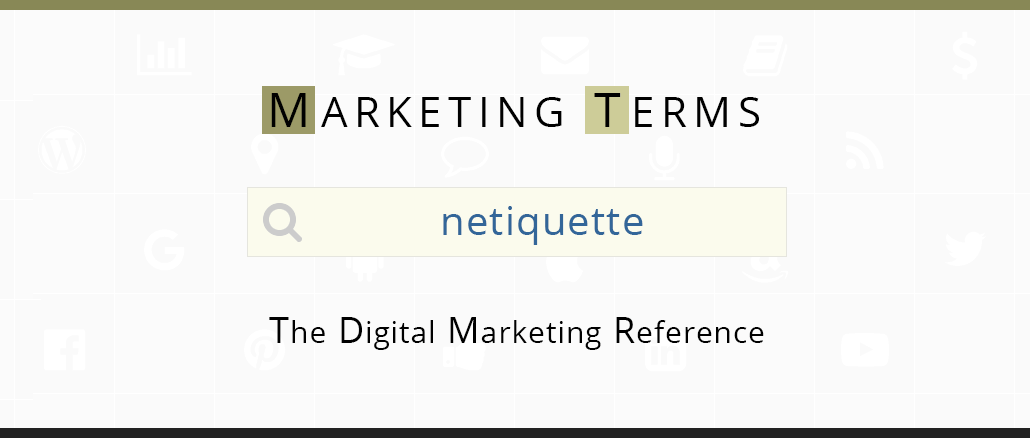
In the classroom, your words, gestures, posture and facial expressions communicate your thoughts and observations to your classmates and teachers. The rules for online learning and classroom learning are virtually the same: You have to study, take notes, attend classes and participate in discussions. Netiquette, which is a portmanteau of “net” and “etiquette,” refers to using courtesy and politeness when communicating with others online. uncountable noun netiquette Netiquette is the set of rules and customs that it is considered polite to follow when you are communicating by means of e-mail or the Internet.Effective communication is key to success in online education, and that’s where the term “netiquette” comes in.Remember: your future employer may be reading. Be proud of your postings but don't post just to see your name in pixels. And be polite, they may not realise their mistake, they might be a beginner or may not even have been responsible for the "crime" - their account may have been used by someone else or their address forged. If you believe someone has violated netiquette, send them a message by private e-mail, DO NOT post a follow-up to the news. This avoids umpteen people posting the same answer to the group and umpteen others posting "me too"s. When you do post a question, follow it with "please reply by mail and I will post a summary if requested" and make sure you DO post a summary if requested, or if only a few people were interested, send them a summary by mail. Before asking a question, read the messages already in the group and read the group's FAQ if it has one. When posting humorous or sarcastic comments, it is conventional to append a smiley, but don't overuse them.

Don't post test messages (except to test groups) - wait until you have something to say. Keep your lines to less than 70 characters. Re-read and edit your posting carefully before you post. If the article you are responding to was posted to several groups, edit the distribution ("Newsgroups:") header to contain only those groups which are appropriate to your reply, especially if the original message was posted to one or more inappropriate groups in the first place. When following up an article, quote the minimum necessary to give some context to your reply and be careful to attribute the quote to the right person.

If what you intend to post will not make a positive contribution to the newsgroup and be of interest to several readers, don't post it! Personal messages to one or two individuals should not be posted to newsgroups, use private e-mail instead. The most important rule of netiquette is "Think before you post". The conventions of politeness recognised on Usenet and in mailing lists, such as not (cross-)posting to inappropriate groups and refraining from commercial advertising outside the biz groups. noun Definition of netiquette in Technology (convention, networking) /net'ee-ket/ or /net'i-ket/ Network etiquette.




 0 kommentar(er)
0 kommentar(er)
